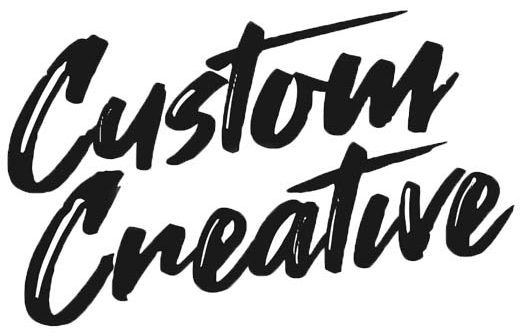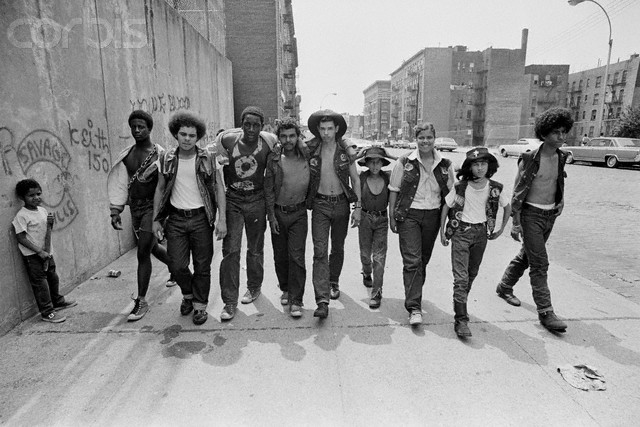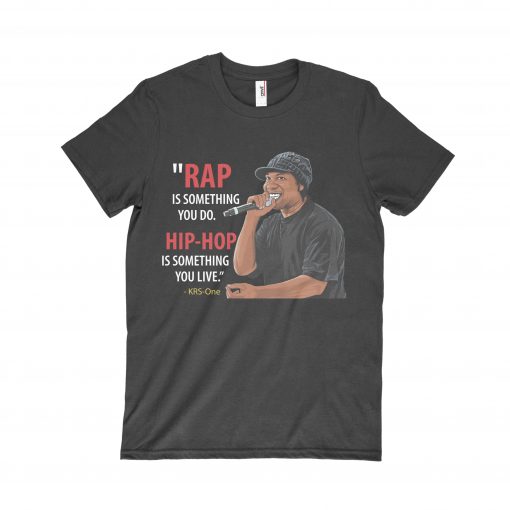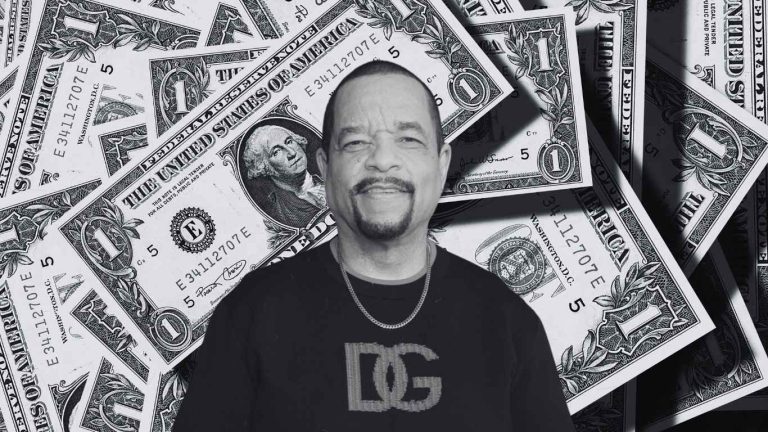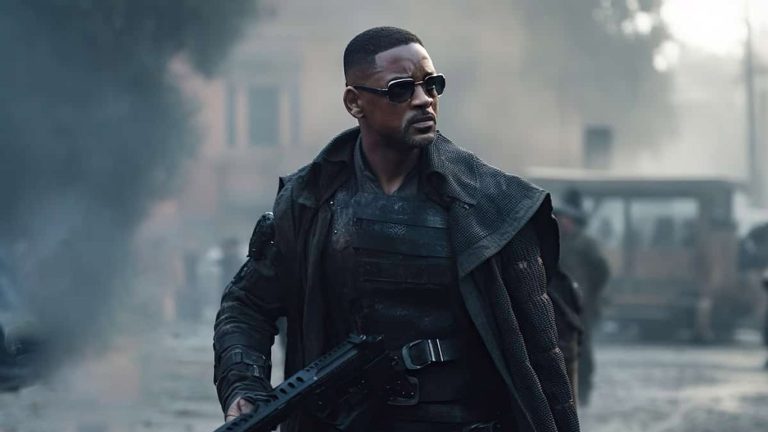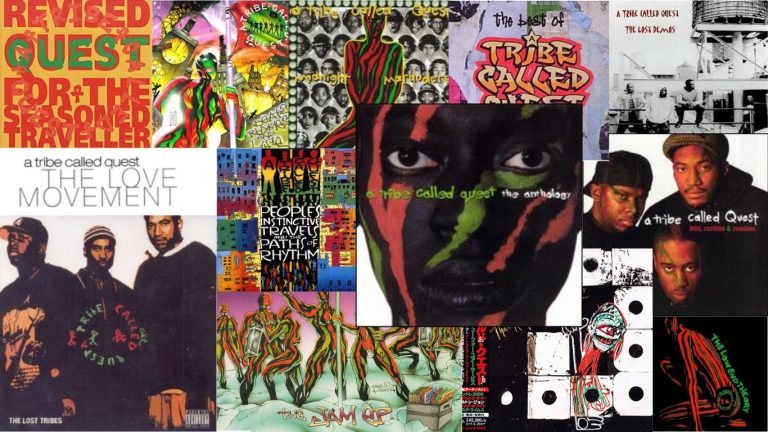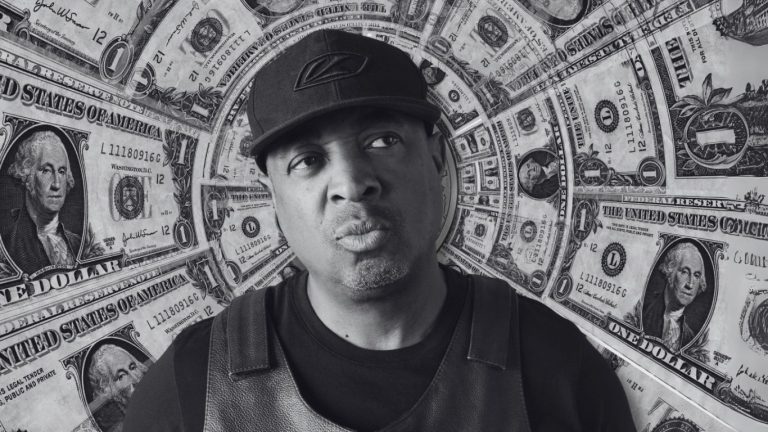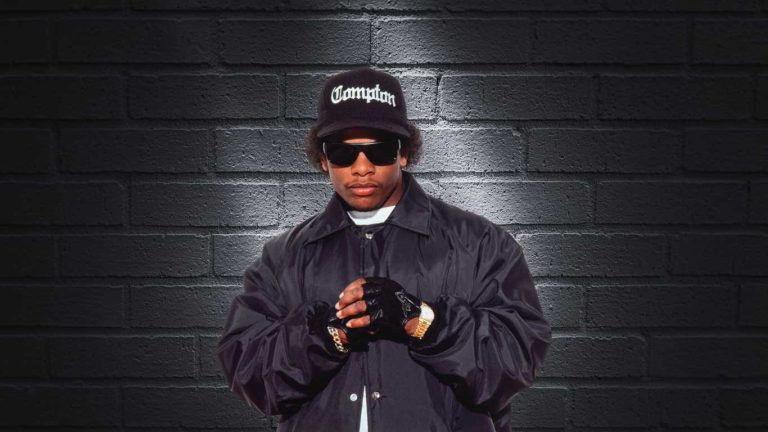50 Years of Hip Hop: The Bronx and Beyond – A Comprehensive Look at the Genre’s Evolution
Hip hop is a cultural movement that began in the Bronx, New York City, in the early 1970s. It originated as a form of expression for African American and Latino youth who were marginalized and facing social and economic hardships. The genre quickly spread beyond the Bronx and became a global phenomenon, influencing music, fashion, art, and dance.
In 2023, hip hop celebrates its 50th anniversary, marking five decades of cultural and artistic evolution. The genre has undergone significant changes since its inception, from its early days of block parties and breakdancing to its current status as a mainstream, multi-billion-dollar industry. Despite its commercial success, hiphop remains a powerful tool for social commentary and activism, addressing issues such as racism, police brutality, and poverty. This article will explore the history and evolution of hiphop over the past 50 years, from its roots in the Bronx to its impact on popular culture today.
The Birth of Hip Hop in the Bronx
Hip hop, a cultural movement that originated in the South Bronx, New York, has since spread globally, influencing music, fashion, dance, and art. The origins of hiphop can be traced back to the early 1970s, when DJ Kool Herc, a Jamaican immigrant, began hosting block parties in the South Bronx.
At these block parties, DJ Kool Herc would play funk and soul music, and he noticed that the crowd responded best to the instrumental breaks in the songs. He began to extend these breaks by using two turntables and a mixer, creating a new style of music that emphasized the beats and rhythms. This technique came to be known as “breakbeat” DJing and became a cornerstone of hiphop music.
The first hiphop MC, or “master of ceremonies,” was Cindy Campbell, who was the sister of DJ Kool Herc. She introduced the DJs and hyped up the crowd with her rhymes. As hiphop evolved, MCs became an essential part of the culture, rapping over the beats and providing a voice for the community.
Hip hop also influenced fashion, with artists wearing oversized clothing, sneakers, and gold chains. The culture was a response to the poverty and violence in the South Bronx, and it provided a creative outlet for young people.
In conclusion, the birth of hiphop in the Bronx was a pivotal moment in music and cultural history. It was a movement that was born out of the creativity and resilience of a community that faced significant challenges. Today, hiphop continues to evolve and inspire new generations of artists and fans around the world.
Key Figures and Influencers
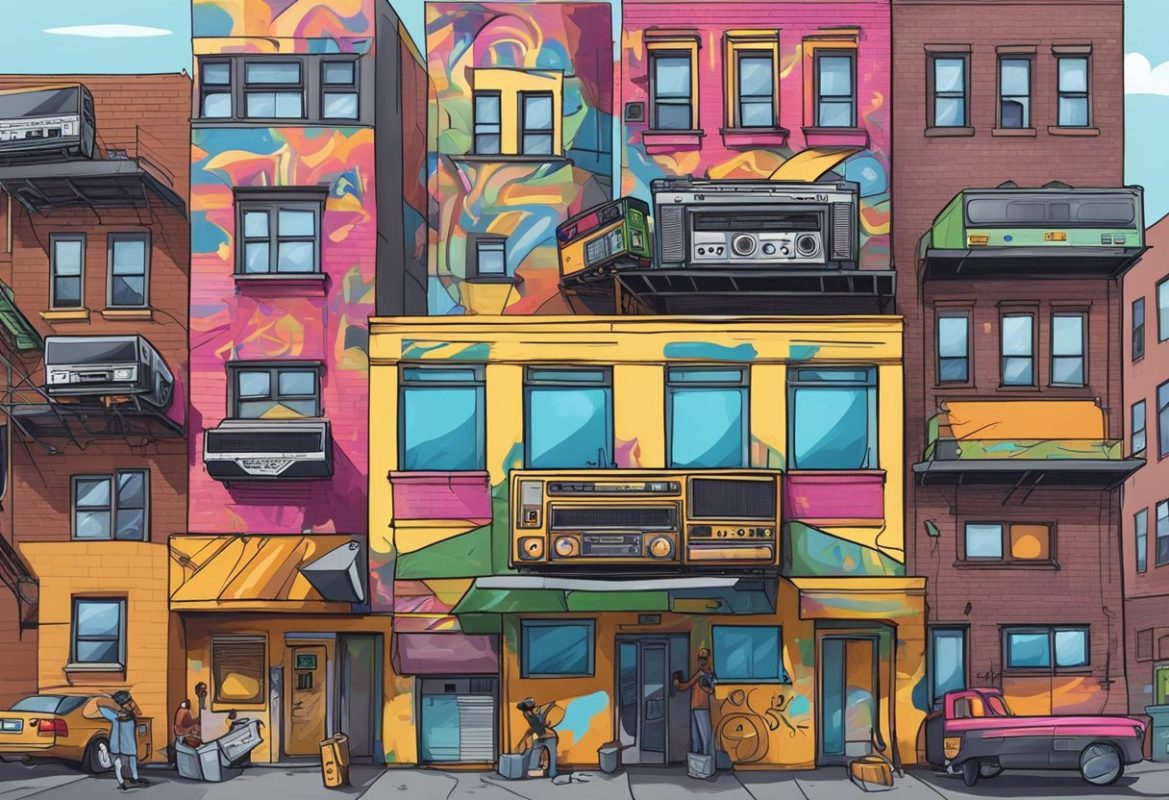
Hip hop has been shaped by a diverse group of individuals who have contributed to its growth and popularity over the past 50 years. This section highlights some of the key figures and influencers who have left a lasting impact on the genre.
Pioneers and Icons
Grandmaster Flash, Run-DMC, and KRS-One are among the pioneers and icons of hiphop. Grandmaster Flash is known for his innovative DJ techniques, including the use of turntables and mixing boards. Run-DMC was one of the first hiphop groups to achieve mainstream success, and their influence can still be felt in hiphop today. KRS-One, also known as “The Teacha,” is a rapper, producer, and activist who has been a vocal advocate for hiphop culture and education.
KRS One T Shirt Tribute: Embracing the Rap Icon’s Wisdom – “Rap is something you do. Hip-Hop is something you live.
Introducing our exclusive KRS One T Shirt, a homage to the legendary rap icon’s enduring legacy. Crafted with premium quality materials, this KRS-One-inspired tee not only pays tribute to the influential artist but also embodies his profound philosophy – “Rap is something you do. Hip-Hop is something you live.” Elevate your style and showcase your…
Fashion Influencers
Hip hop fashion has also played a significant role in the genre’s development. Dapper Dan, a Harlem-based designer, gained notoriety in the 1980s for his custom clothing designs, which often incorporated luxury brand logos. P. Diddy, also known as Sean John, is a rapper and fashion designer who has created a successful clothing line. Kanye West, who has collaborated with Adidas on his Yeezy line, is another rapper-turned-fashion designer who has had a major impact on hiphop fashion.
Political and Community Leaders
Hip hop has also been a platform for political and community leaders to address social issues. U.S. Congressman and civil rights activist John Lewis appeared on the 1989 song “Self-Destruction,” which aimed to raise awareness of violence in African American communities. WABC-TV news anchor Bill Beutel also appeared on the track, delivering a spoken word message about the importance of self-respect and non-violence. Fat Joe and Big Pun, both from the Bronx, have been vocal advocates for their community and have used their music to address issues such as police brutality and social inequality.
Overall, these key figures and influencers have helped shape hiphop into the cultural force it is today.
Cultural Impact and Influence
Hip hop culture has had a profound impact on American culture and beyond. From music and fashion to graffiti and dance, the genre has influenced many aspects of popular culture. The five pillars of hip hop, including MCing, DJing, graffiti, breakdancing, and knowledge, have contributed to the growth and evolution of the genre.
Hip hop music has become a dominant force in popular music, with rapping and beats that have been sampled and imitated across genres. The voices and stories of hiphop artists have given a platform to underrepresented communities and sparked conversations about social issues.
Graffiti, a key element of hip hop culture, has become a recognized art form, with artists such as Banksy and Shepard Fairey gaining mainstream recognition. The bold and colorful designs of graffiti have influenced fashion and design, with brands like Adidas incorporating graffiti-inspired designs into their products.
Breakdancing, another pillar of hiphop, has become a global phenomenon, with competitions and events held around the world. The acrobatic and athletic dance style has inspired other dance forms and has even been recognized as an Olympic sport.
Overall, hip hop culture has had a lasting impact on popular culture, influencing music, fashion, art, and dance. The genre continues to evolve and grow, with new voices and styles emerging from the Bronx and beyond.
Hip Hop and the Music Industry
Hip hop has been a significant part of the music industry for over 50 years, and its influence has only continued to grow. With its roots in the Bronx, hiphop has since expanded to become a global industry, with concerts and events held all over the world.
Television has played a significant role in the rise of hiphop, with shows like Yo! MTV Raps and BET’s Rap City showcasing the genre and its artists to a wider audience. Advertising has also played a role, with hiphop being used in commercials for everything from sneakers to soft drinks.
Hip hop has also been a source of knowledge, with artists using their music to educate their listeners on social and political issues. New York Hot Tracks, a television show that aired in the 1980s, played a significant role in promoting hiphop and showcasing new artists.
The Beastie Boys, a tour group from New York City, were one of the first hiphop groups to achieve mainstream success. Their album “Licensed to Ill” was the first hip hop album to reach number one on the Billboard 200 chart.
Today, hip hop is a global industry, with artists from all over the world contributing to the genre. Its influence can be seen in everything from fashion to dance, and its impact on popular culture cannot be denied.
Hip Hop’s Evolution Over 50 Years
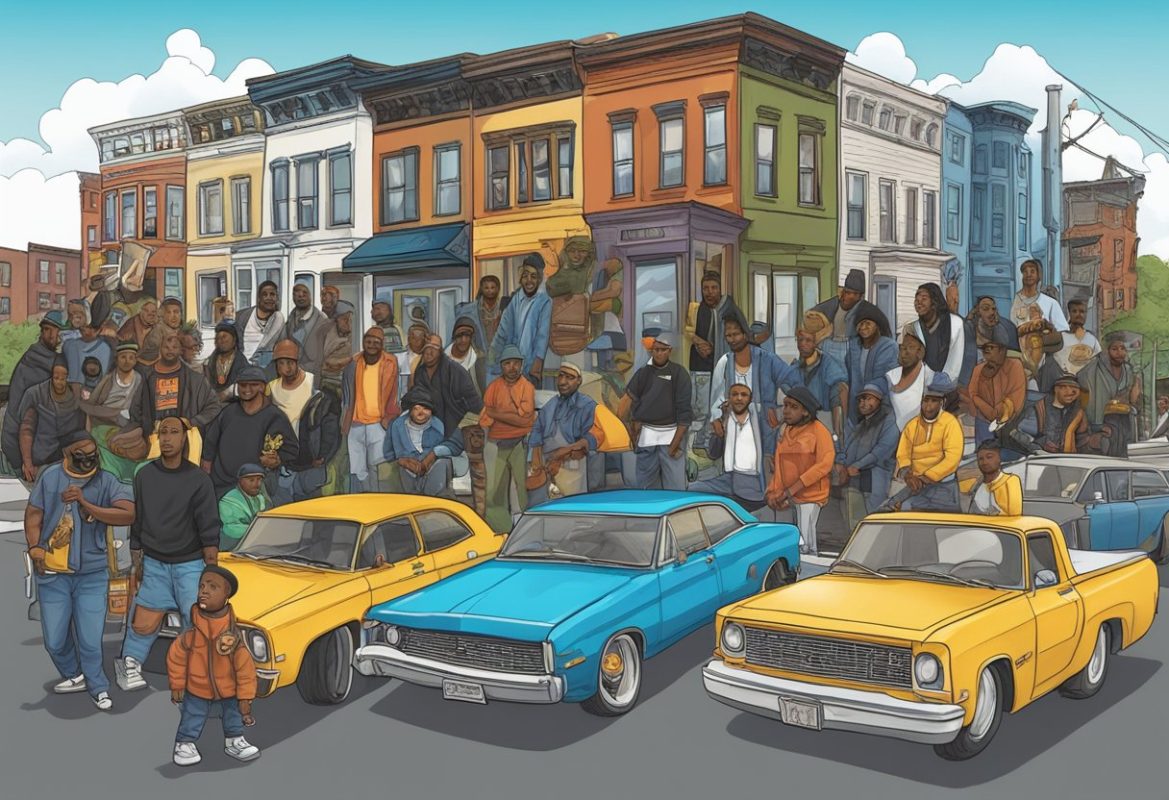
Hip hop has come a long way since its birth in the Bronx 50 years ago. From its early days as a local phenomenon to its current status as a global cultural force, hiphop has evolved in many ways.
One of the most significant milestones in hip hop’s evolution was the 50th anniversary celebration held at Yankee Stadium in 2023. The event brought together some of the biggest names in hiphop to celebrate the genre’s rich history and cultural impact.
Politics has also played a role in hip hop’s evolution over the years. From the socially conscious lyrics of early hip hop pioneers like Grandmaster Flash and Public Enemy to the more recent activism of artists like Kendrick Lamar, hiphop has been a platform for political expression and social change.
Another important aspect of hip hop’s evolution has been the development of the “pillars of hiphop.” These four elements – MCing, DJing, graffiti, and breakdancing – have become integral to the culture of hip hop and have helped to shape its identity over the years.
Tragically, hiphop has also experienced its share of loss and tragedy, such as the death of The Notorious B.I.G. in 1997. Despite these setbacks, hiphop has continued to thrive and evolve, with new artists emerging and pushing the boundaries of the genre.
Overall, hip hop’s evolution over the past 50 years has been a remarkable journey, marked by both triumphs and challenges. As the genre continues to grow and evolve, it will undoubtedly continue to have a profound impact on culture and society around the world.
Hip Hop’s Influence on Society and Politics
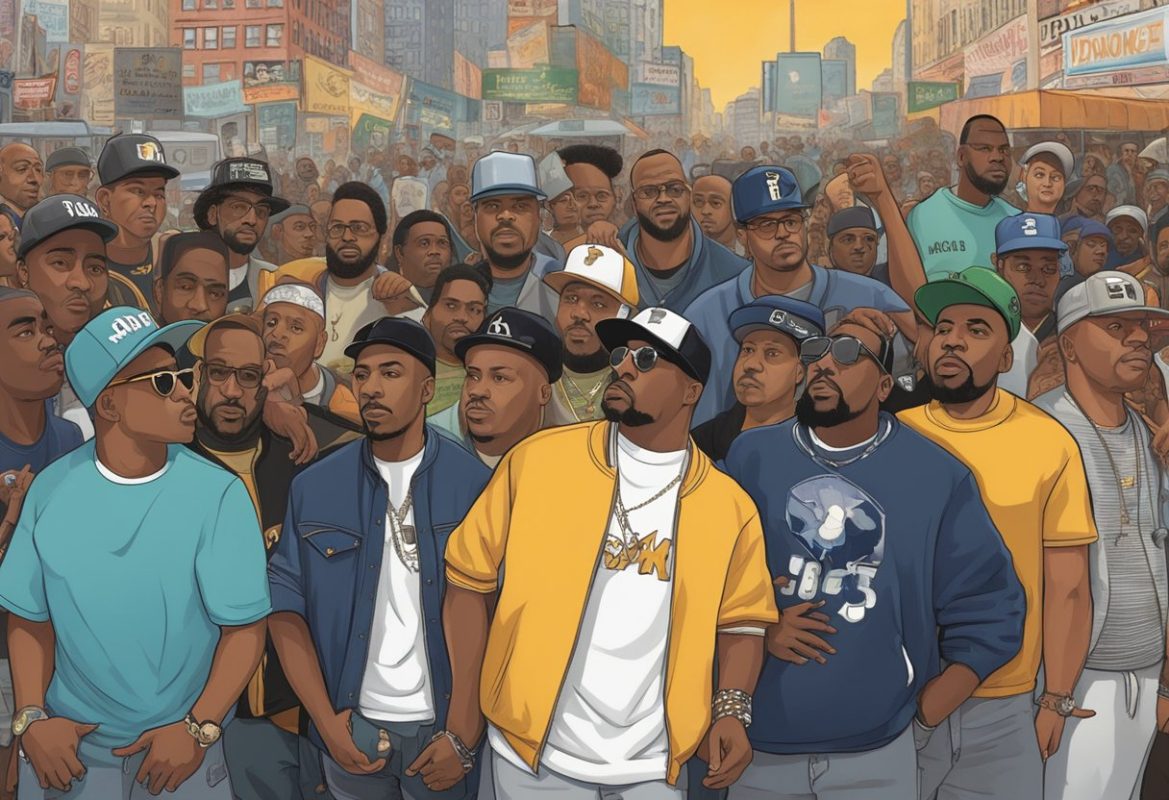
Hip hop has become an influential cultural force that has impacted society and politics in numerous ways. The genre has been a voice for the community, providing a platform for artists to address issues such as poverty, urban decay, and gang violence. Hiphop has also been a tool for political activism, with artists using their music to raise awareness about social and political issues.
In Washington, D.C., hip hop has been recognized as an important part of the city’s cultural heritage. The Smithsonian National Museum of African American History and Culture has featured hiphop exhibits, showcasing its impact on American culture. The museum’s exhibits highlight the contributions of hip hop artists and their influence on society.
Hip hop has also been a catalyst for change in struggling communities. In the Bronx, the birthplace of hip hop, public housing and poverty were major issues that hiphop addressed. The genre provided a voice for those who were marginalized and gave them a platform to express their struggles and experiences.
Beyond the music, hip hop has also influenced fashion, food, and retail space. Brands have embraced hip hop culture and incorporated it into their marketing strategies. For example, the back-to-school party, a popular event in the hiphop community, has become a marketing opportunity for retailers to reach a younger demographic.
In conclusion, hip hop has had a significant impact on society and politics. From community activism to political advocacy, the genre has been a powerful voice for change. As hiphop continues to evolve and influence culture, its impact will continue to be felt for years to come.
Hip Hop Today and Beyond

Hip hop has come a long way since its inception in the Bronx over 50 years ago. What started as a cultural phenomenon has now become a global phenomenon. Today, hiphop is one of the most popular genres of music in the world, with artists from all over the globe creating music that is influenced by the genre.
While the birthplace of hip hop may have been the Bronx, the genre quickly spread to other parts of New York City, including Harlem. In the early days of hip hop, artists like Grandmaster Flash and the Furious Five and Afrika Bambaataa were instrumental in spreading the genre to a wider audience.
As hip hop continued to evolve, so did its message. Artists like Salt-N-Pepa used their music to address issues of gender and sexuality, while others like Public Enemy tackled issues of race and politics. Today, hiphop continues to be a platform for artists to express their views on a wide range of topics.
Hip hop has also had a significant impact on education. George Westinghouse Career and Technical Education High School in Brooklyn, New York, for example, offers a program in music production and recording that focuses on hip hop. This program has helped to train a new generation of hiphop producers and engineers.
Finally, hip hop has also had an impact on popular culture. From fashion to film, hip hop has influenced a wide range of industries. For example, the movie “Wild Style,” which was released in 1983, helped to popularize hiphop culture and introduced the world to the art of graffiti.
As hip hop continues to evolve, it is clear that it will remain a significant cultural force for years to come. Whether it is through music, education, or popular culture, hip hop will continue to shape the world around us.
🎧 Never Miss a Drop
Exclusive product releases, hip-hop deep dives, and member-only discounts. Straight to your inbox.
Free forever. No spam. Unsubscribe anytime.
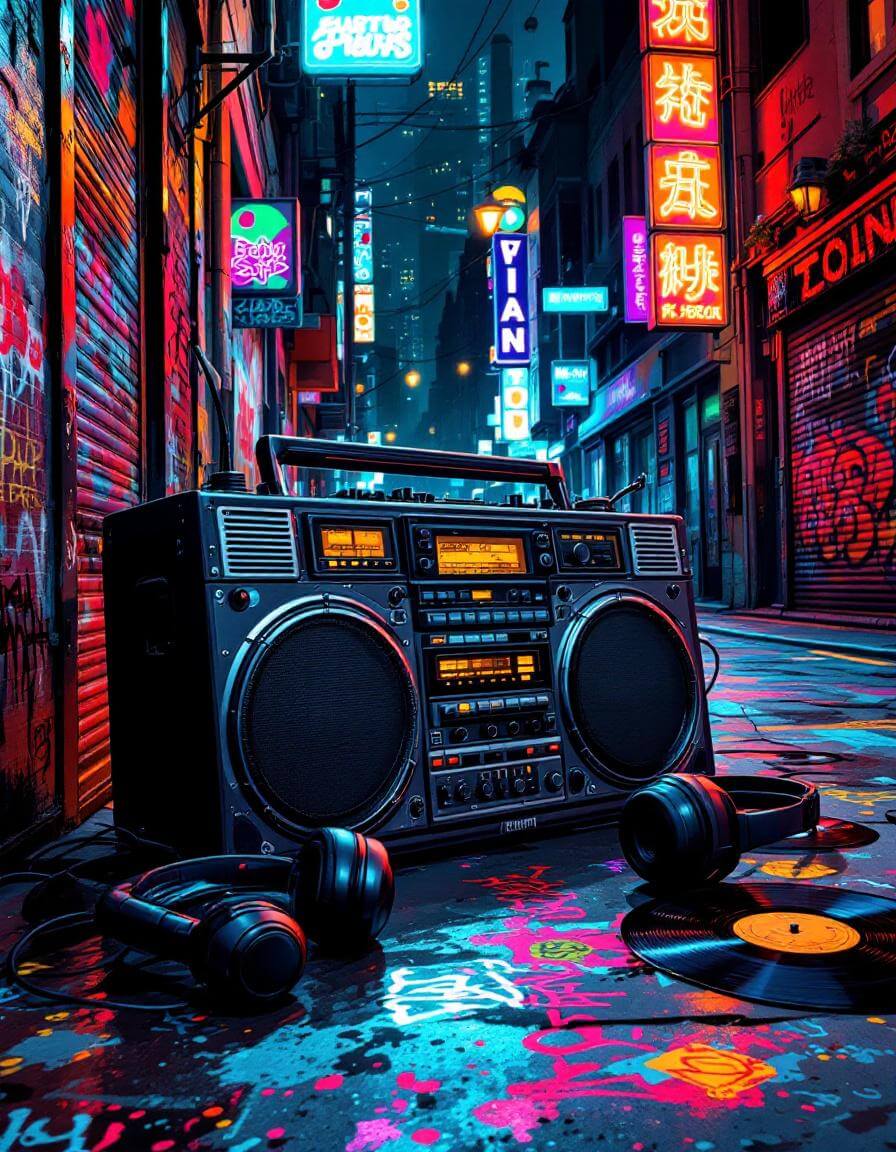
Get the Culture, Delivered
Deep dives into hip-hop history, exclusive product drops, and discounts sent straight to your inbox. No spam, just culture.
Join 2,000+ hip-hop heads already in the loop. Unsubscribe anytime.
